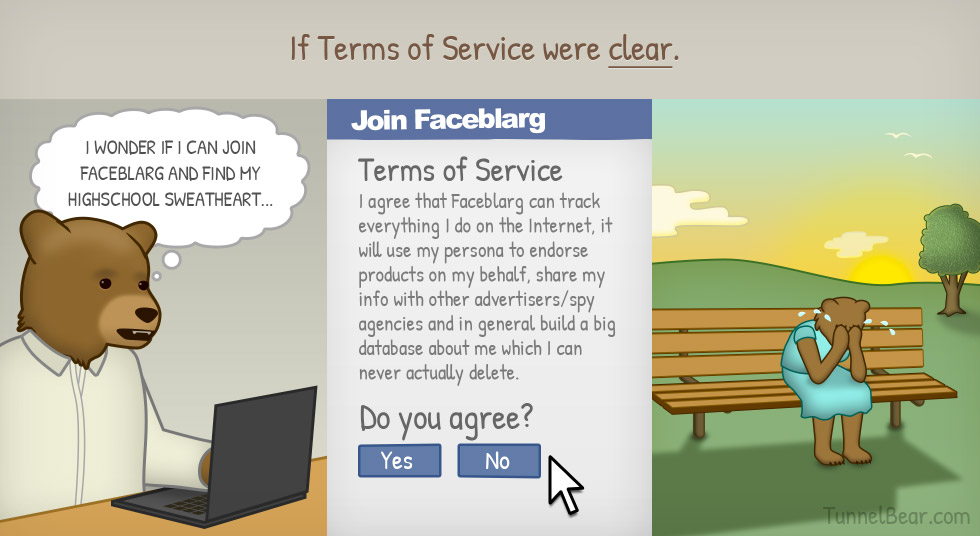Guest Post - What's Hiding in Terms of Service
Terms of service — what the hell does that even mean anyway? In the service industry the mantra is “customers first,” those are the terms. But when it comes to the Internet service industry nothing could be farther from the truth.
Imagine if a waiter, instead of presenting you with a menu presented you as the menu. And imagine that in order to be on the menu, that first, you had to agree to 1000’s and 1000’s words and phrases that require a degree from law school to interpret. That’s what the Internet is like. You’re not the customer, you’re not the waiter, you’re what’s for dinner.
When I began work on my documentary Terms and Conditions May Apply, I was shocked (spoiler alert) to discover that in fact, all the legalese stuffed into a hyperlink in a disregarded corner of a website does apply. It’s a contract. And it’s terms of service that allow Google, Facebook, or any website you visit (or app you use) to access, store, trade, track and hand over your data as they see fit.
My favorite line item in these “agreements” is the notion that an Internet company has the right to “change the terms at any time”. You’ll find this in almost every user agreement. This means that even reading the bloody things is pointless, the terms can change as the company sees fit.
I’m not going to go into all the reasons why privacy matters. Lets just assume that the 4th amendment exists for a reason. If you don’t believe me, watch my film. If you have an account with Tunnelbear (paid subscription I believe), you can even watch it for free.
But companies use terms of service as a justification to abuse your privacy, and the government (via something called the 3rd Party Doctrine), can legally access that information. In terms of service, companies will usually say something like “we may hand over your information to the government to prevent certain crimes” to explain that technicality. We have left the world of probable cause and entered the world of Minority Report.
The future of the Internet economy will rely on innovations that put privacy first. Tunnelbear is one such innovation that circumvents the tracking efforts of companies and hides your digital trail. It won’t, however, stop megacompanies like Google and Facebook from doing what they want with your data. After all, you rely on them to store your information.
What you look at online is your business. Just like no one should have the right to know every book you’ve read, or place you’ve visited, you have the right to travel anonymously around the web. And remember, a contract is only valid if they know who signed it.
So protect yourself from the companies and their saucy lawyers who write these legal traps. Don’t be what’s for dinner.
Guest post by Cullen Hoback – director of the film Terms and Conditions May Apply.

